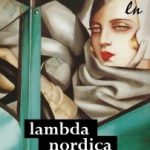 lambda nordica; Special Issue Editors: Mia Liinason and Olga Sasunkevich (Web)
lambda nordica; Special Issue Editors: Mia Liinason and Olga Sasunkevich (Web)
Abstracts due: 15.01.2021 (PDF)
The idea of pride continues to travel across the globe to promote visibility and validity of LGBTI+ people. Yet, as a political movement and community of belonging, pride politics takes shape as a contested field in situated locales, at once challenged and cherished, bringing forth critical questions of the agendas, tactics and visions of its ever-increasing popularity.
This special issue invites papers that draw on various types of ethnographic, empirical and theoretical approaches, with the aim to scrutinize the emergent tensions and temporalities of pride politics through its many shifting times and contexts, transnationally as well as locally. By exploring the tensions and temporalities of pride, this special issue is interested in reaching deeper insights around how scale and place matter for the meaning attached to pride related events. The editors are inspired by scholars who have problematized and challenged the legacy of pride politics as oriented towards a specific form of visibility in urban space and towards legal recognition. Possible topics might include, but are not limited to:
- How do the temporal and transnational travels of pride politics resonate with developments in global, national and/or local contexts?
- What does global/transnational pride politics impose, erase or embrace in local contexts?
- How is the risk of romanticizing the local challenged, transformed or reiterated in localized pride-related events and organizing?
- What multiple dynamics of visibility/invisibility are brought forward in pride-related events in various locales?
- How are tensions between the urban and the rural challenged or re-articulated through pride politics in various settings?
- How are the intersections of race, sexuality and class expressed in pride-related events and organizing?
- How are post/decolonial pride politics expressed in local contexts or transnational travels?
- How are myths and stories reworked or renarrated in pride-related events? What approaches do actors involved in pride-related storytelling take in relation to notions and visions of change?
- How do actors involved in pride politics imagine or express transformation beyond legal recognition?
- How has the sudden shift from the streets to digital space affected pride activism in particular contexts and transnationally?
The editors invite abstracts of 150-200 words. Abstracts should be sent to special issue editors: mia.liinason[at]gu.se and olga.sasunkevich[at]gu.se.
Deadline for abstracts: 15/1 2021.
Deadline for articles: September 1, 2021
Expected publication date: Early fall 2022
All articles will be subject to the regular review process organized by the journal. Articles should be between 6,000 and 8,000 words including footnotes and references and should not have been published previously. The language of the special issue is English. For more detailed instructions, see the journal webpage: www.lambdanordica.org.
Please send queries and submissions to special issue editors. Contact details below.
Welcome with your submission! Contact details special issue editors: Mia Liinason, Professor in Gender Studies, E-mail: mia.liinason[at]gu.se Dept. of Cultural Sciences, University of Gothenburg, Sweden / Olga Sasunkevich, Assistant Professor in Gender Studies, E-mail: olga.sasunkevich[at]gu.se Dept. of Cultural Sciences, University of Gothenburg, Sweden
lambda nordica is a Nordic peer-reviewed academic journal for research in the Humanities and Social Sciences with relation to LGBT and Queer Studies. The journal strives to support the dialogue between established and younger scholars to inspire to more LGBTQ research in the Nordic area and support the initiative to new research areas in the field. The journal also introduces and reviews international LGBTQ literature.
Source: AtGender
